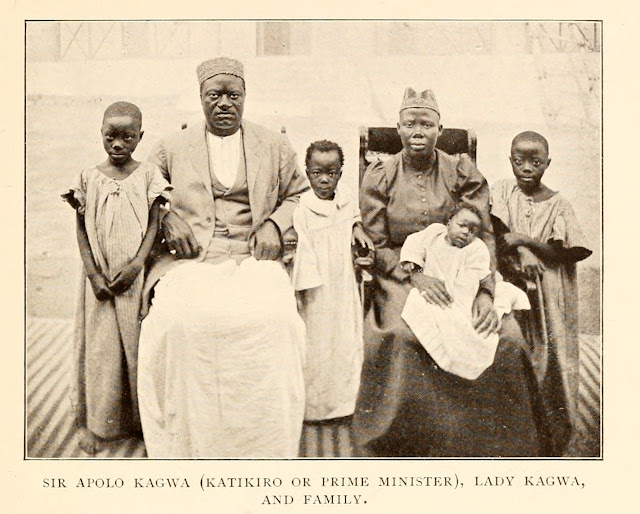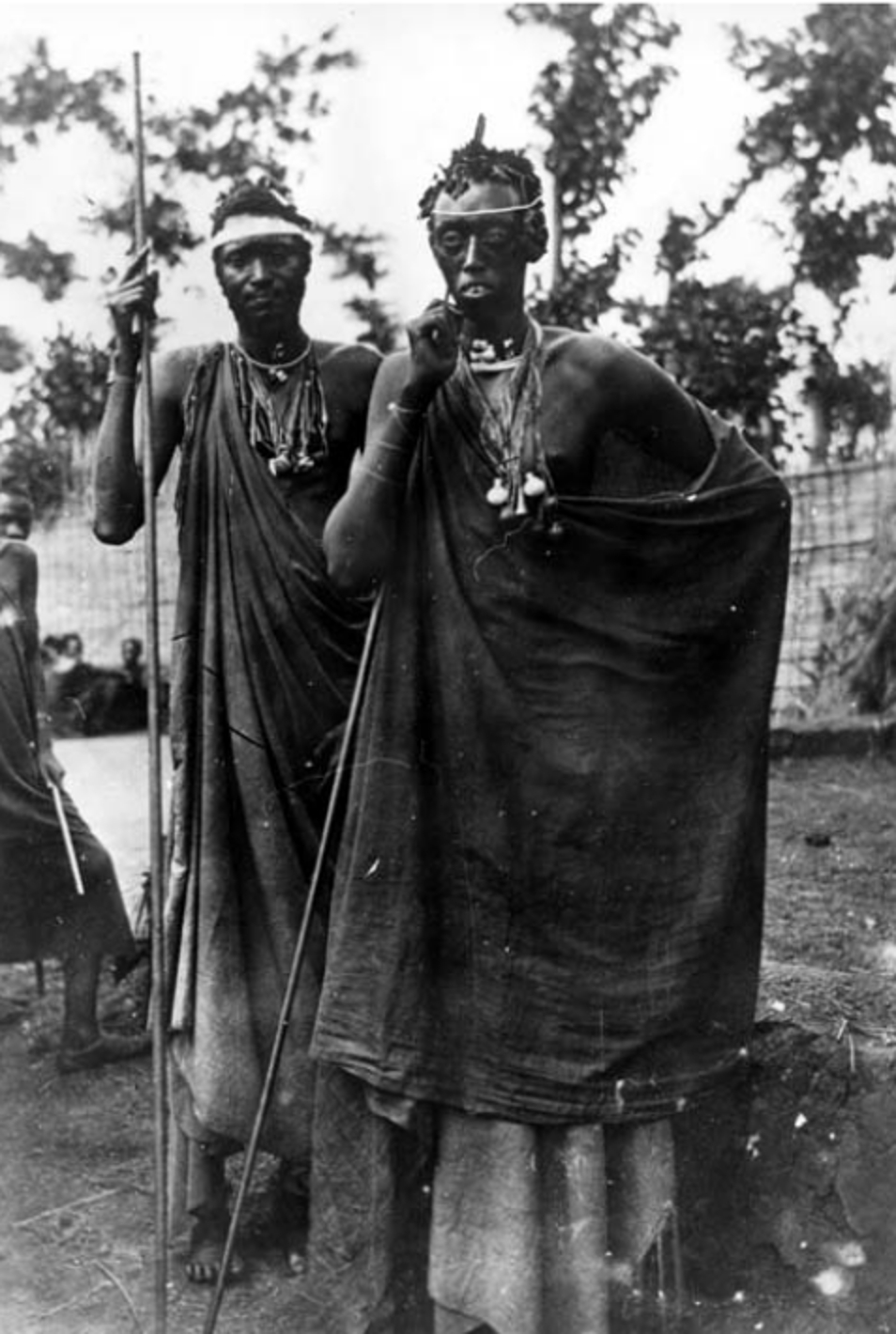Interlacustrine Victorians: Apollo Kaggwa
The Guardian recently reviewed an exhibition of photographs
of Africans made by the London Stereoscopic Company. This nice article inspired
me to start a series of posts with photographs from interlacustrine Africa, which
I haven mainly taken from C. W. Hattersley’s book “The Baganda at home”. I hope
I will add more sources to the project in future.
I take the
term “Victorians” in a very broad sense. To me it’s not only about British
culture in 19th century, but something that describes a global
colonial culture that spread with the European expansion. The “Victorian” in
this global colonial culture is a set of certain understandings about the
individuality, concepts of the family, the notion of education as a tool for
self-improvement and finally a set of habitual practices.
Why it is
global? Colonial expansion in the 19th century was a European
project. Sure, Britain was at the forefront of this endeavor, but it was not
the only party involved. Between the different European powers there were many cross-cultural
flows. Many Europeans from other nations, Asians and Africans worked in various
functions of Britain’s informal empire in Africa the three quarters of the 19th
century. Notably to the Germans,
Britain’s imperial culture served as a model for their own imperial habits.
Victorianism therefore was not confined to Great Britain. Other European too participated
in its spread around the world. So did Asians, Africans and Americans, too.
According to David
Cannadine, British imperial culture took much from its contact with Indian
elites.
Why its
colonial? The colonial expansion of Europe was a main track for the dissemination
of Victorian culture around the world. Many core concepts of Victorianism were
connected to Britain’s imperialism. Abolitionism
and liberalism nurtured its imperial desire. The importance of education for self-improvement
was a main pillar for missionary visions to convert Africans. Africans’ fascination for Victorian life-style was a
result of an increasing connectedness with global markets. Urban elites from
the Gold Coast, who had become rich trading within the Atlantic Ocean adopted parts
of Victorian cultures as a way to participate in an emerging global culture.
The adoption
of Victorian culture by these Gold Coast elites coincided with a new interest
in their African roots. Gold Coast intellectuals proudly wore African clothes,
searched for their own aancestry and history Patterns of Victorian culture were indeed only
one among other that fascinated Africans and served to express the social
change they experienced in the 19th century.
This was
the case with Apollo Kaggwa and the Bugandan elites, too. Kaggwa was, according
to his own testimony, born in 1865.[1]
This was a time, when Muslim traders from the East African coast became
influential at the court of kabaka Mutesa I. The kabaka himself showed a great
interest in the Muslim faith, Of much greater fascination were the luxury goods
the traders brought with them. The Bugandan elites enthusiastically adopted
coastal cloth and habits as a way to express their distinction toward
commoners. Kaggwa himself, who became member of the household of an important
chief, had some contacts with Bugandan Muslims. The caretaker of the Royal
Mosque, a certain Nzalambi, promoted him to the court of Mutesa, where he joined
the service of Kulugi, the chief keeper of the royal stores.[2]
Under the influence of missionaries of the Christian Mission for Africa, who
arrived in Buganda in 1879, Kaggwa later choose the Christian faith. He probably
did this for the same reason the
predecessor generation choose the Muslim faith. In the political turmoil that
followed Mwanga’s accession to the throne, Kaggwa was arrested in 1886. He was publicly
beaten, but escaped death. One year later the civil war in the Buganda started,
in which different faction of the elites fought for dominance. This was not
uncommon in Buganda’s political history, but this time the fight for power was charged
with religious confessions of the rival parties. Kaggwa became the leader of
the Protestant faction. As a result of a power sharing agreement with Mwanga,
he became for the first time the katikiro of Buganda, the highest office after the
king. Peace lasted only for a few months. With the help of Frederick Lugards
Imperial British East Africa Company, the Protestant faction first won over the
Muslim faction and later over its former allies, the Catholics. Mwanga went to
exile, and the minor Daudi Chwa was installed as a the new kabaka. As result,
Kaggwa became the most powerful man in Buganda. He played a decisive role in
Buganda’s path towards its inclusion into the British sphere of influence and,
more important, to a complete overhaul of its political and social life.
Being a
part of the British Empire meant to Kaggwa also becoming a Victorian. That was
as much a statement of acceptance of the Empire’s influence as a statement
about equality. The Bugandan agreement of 1900 assured the Bugandan elite a
large degree of autonomy. Buganda became part of the British empire as an ally
not as a subjugated enemy. This, at least, was the viewpoint of Bugandans like
Kaggwa. The British had a slightly different view and the struggle over the
interpretation of the Buganda agreement last for years.
On the
photography, we see Kaggwa’s interpretation of Victorian culture. It is about Christian
norms of family, about self-confidence and individuality. But still, this
is mingled with traces of other cultural influences. His clothes still show the
influence of the Muslim coastal culture. Like the coastal intellectuals in early 19th
century, becoming a Victorian meant also developing an interest in its own
heritage. Kaggwa was one of the first Bugadans to explore the kingdom’s rich
history. He wrote several books on this topic.



Comments
Post a Comment